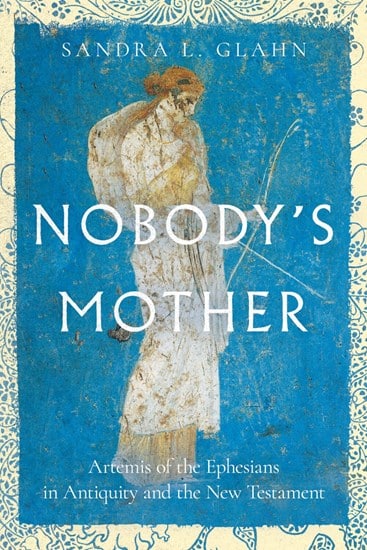Nobody’s Mother: Artemis of the Ephesians in Antiquity and the New Testament

Article 5 of 5

SandraGlahn.com – Making Research Accessible
(See Dr Glahn’s new book, Nobody’s Mother: Artemis of the Ephesians in Antiquity and the New Testament)
This article is part of the series Pursuing Partnership: Men and Women in Ministry.
Some Christians think Paul’s reference to “saved through childbearing” in 1 Timothy 2:15 means that women are made primarily for delivering and raising children. Alternate readings, however, sometimes fail to build on the best historical and textual evidence.
Sandra Glahn thinks that we have misunderstood Paul by misunderstanding the context to which he wrote. A key to reading and applying 1 Timothy, Glahn argues, lies in getting to know a mysterious figure who haunts the letter: the goddess Artemis.
Based on Acts 19, groundbreaking research, and new data about Artemis of the Ephesians, Nobody’s Mother demonstrates how better background information supports faithful interpretation. Combining spiritual autobiography with scholarly exploration, Glahn takes readers on a journey to ancient Ephesus and across early church history. Unveiling the cult of Artemis and how early Christians related to it can give Bible readers a clearer sense of the type of radical, countercultural fellowship the New Testament writers intended Christ’s church to be.
This book, which received a starred review from Publisher’s Weekly, is for those who want to avoid sacrificing a high view of Scripture, retain a charitable view of Paul, and reconcile the entire counsel of God as it describes women—as opposed to cherry-picking verses that see women only through their limitations. Through the unexpected channel of Paul’s advice to Timothy and the surprising help of an ancient Greek myth, Nobody’s Mother lays a biblical foundation for men and women serving side by side in the church. As a result, Glahn says, is that people will see what Paul was trying to say and believe his message: “Jesus is better.”
Christa McKirland, executive director of Logia International, writes of the book, “In this masterful literary, epigraphic, architectural, and exegetical study, Sandra Glahn brings the significance of Artemis worship to bear in the interpretation of being ‘saved through childbearing’ (1 Tim 2:15). This text is critically linked to the seemingly transcultural prohibition of women teaching men (1 Tim 2:12). However, anyone seeking to be faithful to Scripture should remember that these texts were first God’s Word to others before they were God’s Word to us. By understanding who Artemis of the Ephesians was and how this likely influenced these texts, Glahn exposes the context of 1 Timothy to apply these words more accurately today. This book is a game changer.”
Theologian Scot McKnight wrote, “This is a richly textured study that will prove itself valuable to the church, to the seminary, and to schools.” You can read his Substack series on the book here: Scot McKnight’s series on Nobody’s Mother
You can find more about it on these sites:
NT scholar Michael Bird weighed in on Nobody’s Mother
Irving Bible Church’s Formed Podcast
Honestly, Though: Real Talk. Real Life. Real Faith podcast
IVP author interview featured in their catalog
This article is submitted by Wendy Wilson of Missio Nexus and of Women’s Development Track. Women’s Development Track is a Missio Nexus member. Member organizations can provide content to the Missio Nexus website. See how by clicking here.


Responses